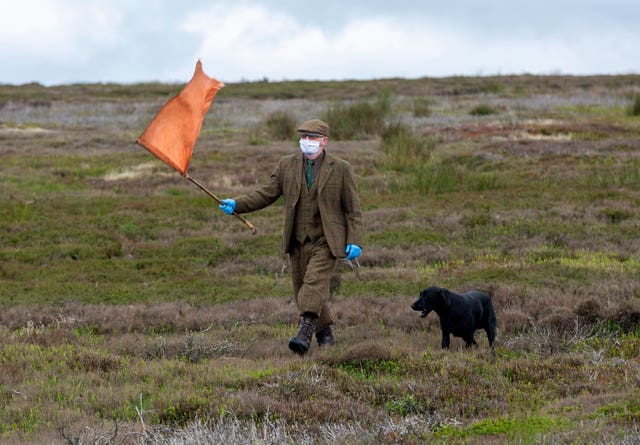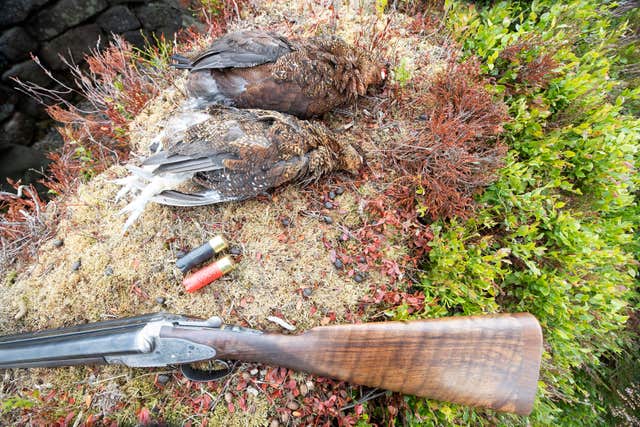The grouse shooting season kicks off with the “Glorious 12th”. Here are the answers to some key questions:
– What is the Glorious 12th?
It is August 12, the traditional start of the red grouse shooting season, which takes place in Britain’s heather upland moors.
– How has it been affected by Covid-19?
Even just a few weeks ago, it was not clear if the grouse shooting season would go ahead.
Countryside organisations have put in place measures to make it safe, including the use of personal protection equipment, social distancing, food hygiene measures and travel restrictions.
Some would-be participants are not travelling from abroad but shoot managers hope that the shortfall will be made up by people from within the UK taking part.

– What are the benefits of grouse shooting?
The Moorland Association, which represents heather moorland managers in England and Wales, says shooting generates £2 billion a year for the economy, with nearly £70 million direct benefits to rural communities.
It also says land management on heather moorlands where the grouse live helps other rare wildlife such as golden plover, lapwing and curlew.
– But isn’t it controversial?
Yes, conservationists have raised concerns about the illegal killing of birds of prey on moorlands managed for grouse.
Birds of prey can come into conflict with landowners and gamekeepers – with hen harriers particularly vulnerable because they prey on the chicks of red grouse that are quarry for shoots on upland estates.
A study released by government conservation agency Natural England in 2019, analysing satellite tagging data, found young hen harriers suffer abnormally high death rates, with illegal killing the most likely cause.
There are also concerns about burning heather to stimulate new growth that grouse like to feed on, in moorland which sits on peat – much of it historically drained for sheep grazing.
The Moorland Association says managing moorland with burning is important to prevent wildfires and support wildlife, but the RSPB says burning releases carbon emissions and blanket bog should be restored to hold water and prevent flooding downhill.

– What can be done?
Various approaches have been suggested, and tried, including diversionary feeding of hen harriers with other food to prevent them preying on grouse chicks.
More controversial is “brood management” in which harrier chicks are removed from their nest to prevent predation of grouse and released back into the area once they can fend for themselves.
Earlier this year, groups representing the shooting industry, gamekeepers and landowners pledged “zero tolerance” on the illegal killing of birds of prey.
But conservation groups, including the RSPB, want to see licensing of grouse shoots, while some, such as TV naturalist Chris Packham, have called for an outright ban.




Comments: Our rules
We want our comments to be a lively and valuable part of our community - a place where readers can debate and engage with the most important local issues. The ability to comment on our stories is a privilege, not a right, however, and that privilege may be withdrawn if it is abused or misused.
Please report any comments that break our rules.
Read the rules here